Archery enthusiasts and outdoor adventurers alike understand the exhilarating challenge of hitting the bullseye. But achieving that flawless shot isn’t just about skill—it requires the right equipment, and a stabilizer is a key component of the equation. In this comprehensive guide, we’ll explore the fascinating world of archery stabilizers.
We’ll unravel their role in enhancing accuracy, and offer expert insights along the way. Whether you’re a newbie to archery or a seasoned shooter, this guide will help you master precision and elevate your overall performance.
Also Read : Master Your Aim With The Ultimate Guide To Archery Targets
Understanding Archery Stabilizers
What Is An Archery Stabilizer?
Archery stabilizers are devices attached to a bow to improve balance, reduce vibrations, and enhance shooting accuracy. Traditionally, stabilizers were simple rods added to bows for extra weight. Over time, they’ve evolved into sophisticated tools manufactured from durable materials like carbon fiber. Today, stabilizers are designed in various weights and configurations to cater to different archery styles.
The Science Behind Stabilizers
To understand how stabilizers enhance bow performance, let’s consider some basic physics principles. When an arrow is released, energy is transferred from the bow to the arrow, causing vibrations. Stabilizers absorb vibrations, resulting in steadier shots. Additionally, by distributing weight forward, stabilizers balance the bow, minimizing unwanted movements. Imagine holding a broom upright; it’s much easier when weighted at the base. This concept of weight distribution is crucial for bow stability and precision.
Also Read : Aim True With 3d Archery Targets And Hit The Mark Every Time
Types Of Archery Stabilizers
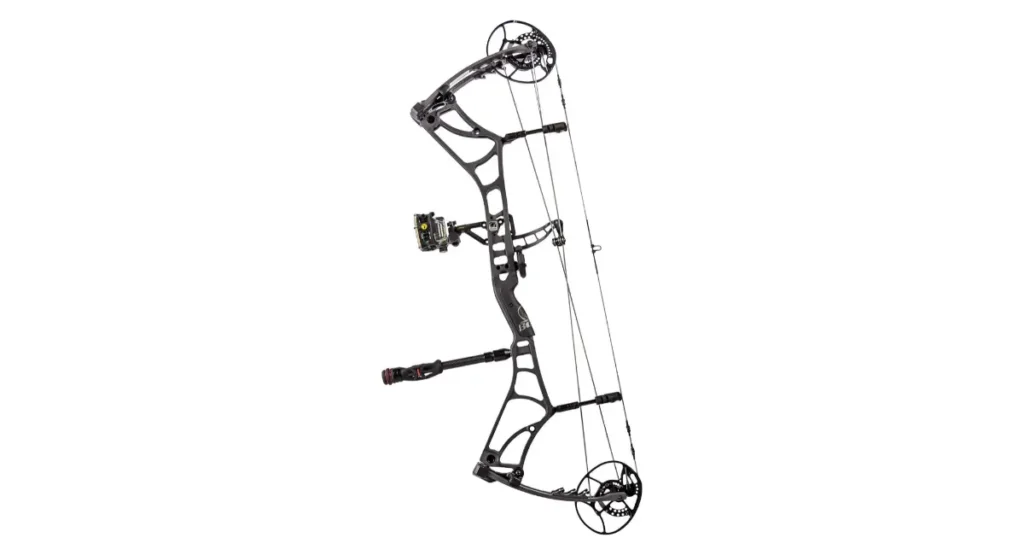
Front Stabilizers
Front stabilizers are the most common type, extending outward from the bow’s front. They provide additional weight and balance, reducing the bow’s natural tilt tendency. Ideal for target shooting and hunting scenarios, front stabilizers enhance accuracy by minimizing hand torque during release. Their simplicity and effectiveness make them a popular choice among archers of all skill levels.
Side Rod Stabilizers
Side rod stabilizers counterbalance the bow’s weight. Unlike front stabilizers, side rods are mounted perpendicular to the bow, offering lateral stability. This design makes them particularly useful for target archers who require precision in every shot. By balancing the bow from side to side, side rod stabilizers contribute to more consistent aim and improved archery accuracy.
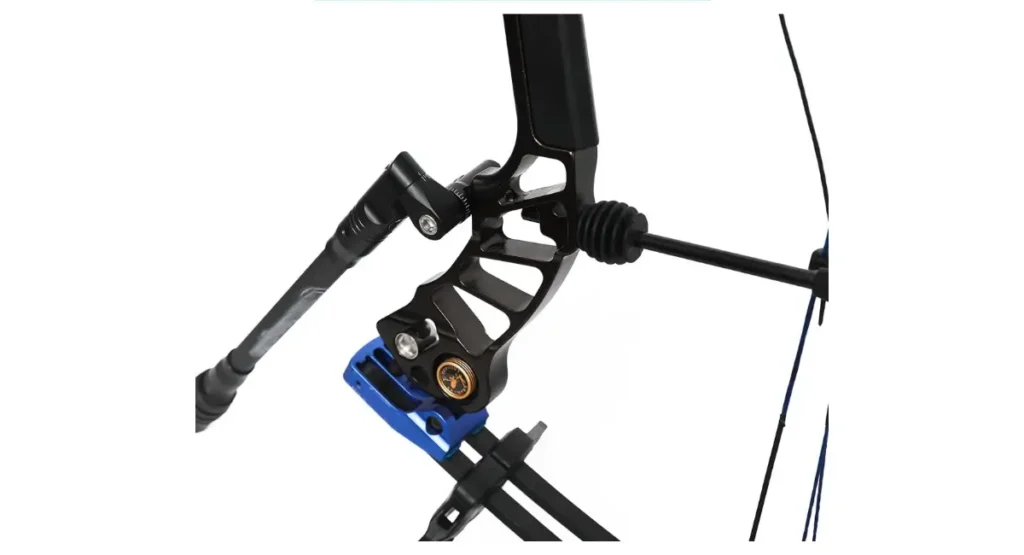
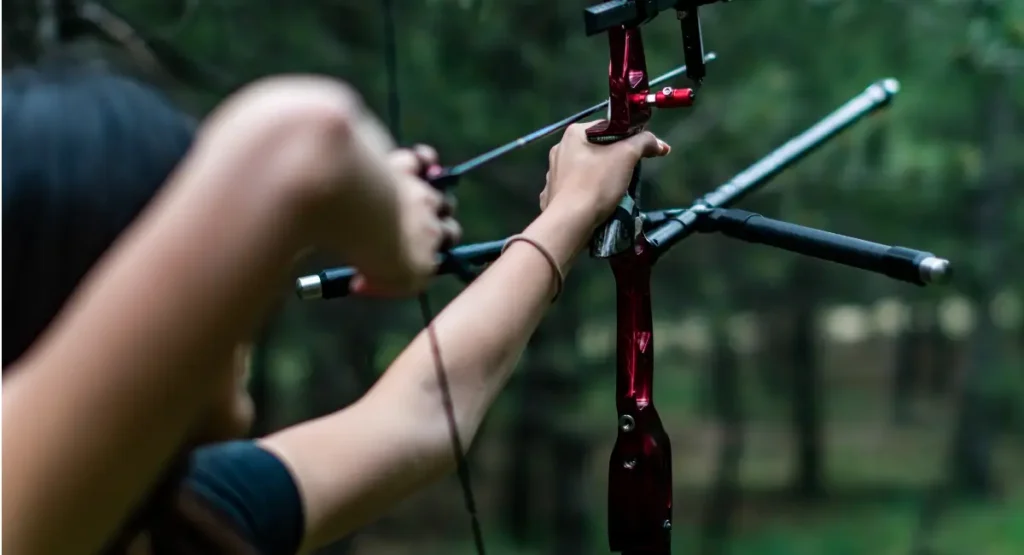
V-Bar And Offset Stabilizers
V-Bar and offset stabilizers are advanced setups involving multiple rods and attachments. These stabilizers are adjustable, allowing archers to customize their balance and weight distribution. V-Bars are favored by competitive archers who seek optimal bow stability. By strategically positioning weights, archers can achieve a personalized setup that suits their shooting style and preferences.
Compound Vs. Recurve Stabilizers
The choice between compound and recurve stabilizers depends on the type of bow you’re using. Compound bows, with their intricate cam systems, benefit greatly from stabilizers that balance weight. Recurve bows, on the other hand, often use shorter stabilizers to maintain maneuverability. Understanding these differences is crucial when selecting the right stabilizer for your bow setup.
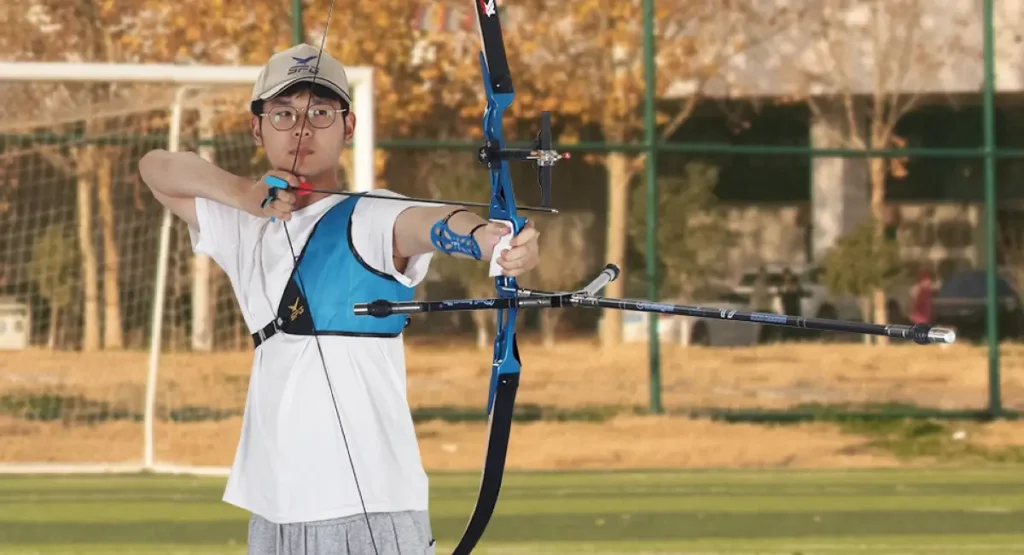
Also Read : Mastering the Art of Bow Sights Maximizing Archery Accuracy
Choosing The Right Stabilizer
Factors To Consider
Archery requires the right stabilizer for enhancing performance. Several factors should be considered to find the ideal stabilizer for your needs.
- Length : Longer stabilizers offer increased balance, benefiting stability. However, they can be cumbersome in dense hunting environments.
- Weight : The stabilizer’s weight significantly impacts your bow’s feel and stability. A well-balanced weight can greatly enhance your shooting experience.
- Balance : Finding the right balance is essential and should align with your archery style. Whether you’re into target shooting, hunting, or 3D archery, balancing these factors will lead you to the perfect stabilizer.
Also Read : Discover The Power Of The Best Archery Stabilizer For Accuracy And Precision
Customize Your Setup
Customizing your stabilizer setup is essential for archery performance. This process involves trial-and-error testing of different configurations.
Start by experimenting with various lengths and weights to discover what feels most comfortable for you. Many archers find it beneficial to add or remove weights during this fine-tuning process, allowing them to achieve optimal performance tailored to their individual needs and shooting conditions.
Practical Tips For Using Stabilizers
Installation And Adjustment
Proper installation and adjustment of stabilizers is essential for maximizing their benefits. Begin by securely attaching the stabilizer to the bow’s front or side mount. Use a wrench to tighten the screw, ensuring it remains stable during use. Adjust the stabilizer’s position to achieve the desired weight distribution. Avoid common mistakes such as over-tightening or misaligning the stabilizer, which can lead to imbalanced shots.
Maintenance And Care
Caring for your stabilizer ensures its longevity and performance. Regularly inspect your stabilizer for signs of wear, such as loose screws or damaged components. If parts need replacement, consult the manufacturer’s guidelines or seek professional assistance. Proper maintenance will keep your stabilizer in top condition, allowing you to focus on perfecting your archery technique.
Also Read : A Comprehensive Guides of Traditional Archery Quiver
Real-World Examples
Case Study Target Archer’s Experience With Stabilizers
Consider the experience of a local archery club that integrated stabilizers into their training regimen. Before using stabilizers, competition results were inconsistent, with many archers struggling to maintain steady shots. After adopting stabilizers, the club noticed a significant improvement in accuracy and consistency. Their members reported better control over their shots, leading to higher scores and increased confidence.
Case Study: A Hunter’s Perspective On Stabilizers
Hunters benefit from stabilizers. One hunter shared a success story about how a personalized stabilizer adjustment improved their shot accuracy. Before using a stabilizer, they struggled with erratic shots, especially on challenging terrains. With a customized stabilizer setup, they achieved more precise shots, enhancing their success rate during hunts and contributing to more ethical harvesting.
Also Read : Large Archery Targets: The Art Of Mastering The Art Of Archery
Expert Opinions And Recommendations
Consulting archery experts can provide valuable insights into stabilizer benefits.
According to renowned archer Jane Smith,
“A well-balanced stabilizer can make a world of difference in accuracy and consistency. It’s all about finding the right setup that complements your shooting style.”
Frequently Asked Questions (FAQs)
How Does A Stabilizer Improve Archery Accuracy?
A stabilizer enhances accuracy by absorbing vibrations, balancing the bow, and minimizing unwanted movements during the shot.
What Length Stabilizer Is Most Suitable For Target Archery?
Longer stabilizers are generally preferred for target archery, as they offer better balance and stability.
Can You Use A Bow Without A Stabilizer?
While it’s possible to shoot without a stabilizer, using one significantly improves accuracy and reduces hand fatigue.
How Do I Choose The Right Stabilizer For My Bow?
Consider factors like bow type, archery style, and personal preference when selecting a stabilizer. Testing different setups can help identify the most suitable option.
Do Stabilizers Matter In Bow Hunting?
Yes, stabilizers enhance accuracy in bow hunting by improving shot consistency and reducing noise.
What Is The Difference Between A Front And Side Stabilizer?
Front stabilizers extend outward for balance, while side stabilizers offer lateral stability. Both types contribute to improved accuracy.
Also Read : How To Wax Your Bow String – Master The Art For Optimal Archery Performance
Conclusion
Choosing the right stabilizer is crucial for archery precision. By understanding the science behind stabilizers, exploring different types, and customizing your setup, you can enhance your accuracy and overall performance.
Remember, archery is a personal journey, and experimenting with stabilizers can improve your archery. Whether you’re a target archer, a hunter, or an outdoor enthusiast, explore the world of stabilizers. This will unlock your full archery potential. If you have questions or experiences to share, feel free to leave a comment below—your fellow archers would love to hear from you!
Recommended Articles
- Archery Release Types – A Comprehensive Guide
- Powerful Backyard Archery Range: Beginner’s Ultimate Guide
- Peep Sight On A Compound Bow : A Comprehensive Guide For Beginners
- Best Crossbow Broadhead: Perfect Arrowhead for Precision and Power
- Axe 405 Crossbow Problems: Overcoming Common Problems
- Exploring the Empowerment of Hunting with Recurve Bow

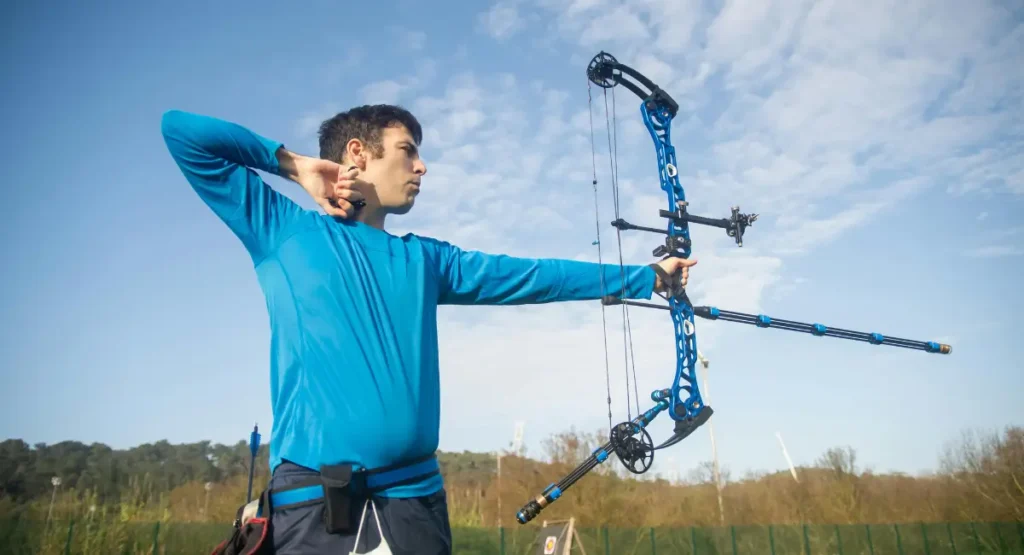
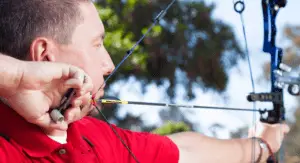
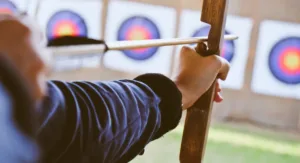
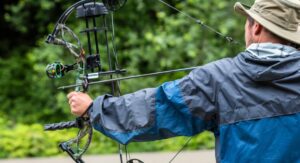
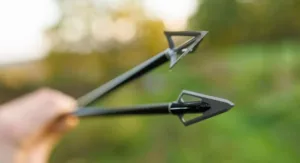
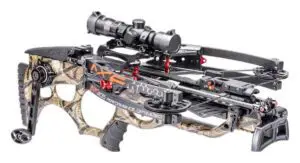
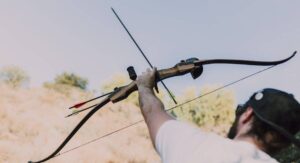
1 thought on “Mastering Precision: What Does A Stabilizer Do In Archery?”
Comments are closed.